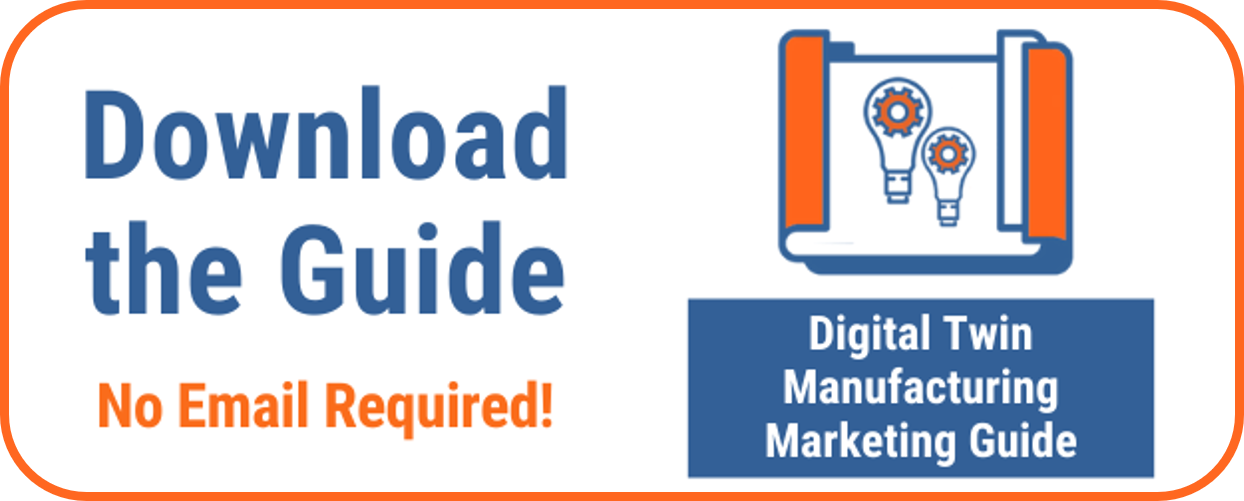When it comes to implementing marketing responsibilities, you may find yourself struggling with this question: Should we keep it in house, or should we outsource?
It’s been a common head-scratcher for companies big and small. But it may not need to be, provided you’re thinking strategically and you have the right decision-making data.
We’ll provide both quantitative and qualitative information to help you unravel the in-house vs. outsourcing conundrum. More specifically, we’ll illustrate three different scenarios for implementing an effective marketing program:
1. Build an in-house marketing department
2. Develop a hybrid team of in-house and outsourced marketing specialists
3. Outsource nearly all marketing tasks
Before you read more, here’s a quick video:
Creating digital marketing takes a lot of time and expertise
Marketing today means digital marketing. And digital involves multiple disciplines, many of which are evolving so rapidly that it’s hard to keep up. Digital strategy. Social media. Digital advertising. Video. Blogging. Analytics. All of these areas require time and expertise.
Consider content alone.
You have to create and deliver content online in multiple ways to multiple channels. And quality content (even with AI) requires research and interviews with experts. That means you can expect resource drains like the following:
- The average blog post takes over 4 hours to produce.
- A high-quality marketing video can take 4 to 8 weeks to complete.
- Social media that leads to results can take a minimum of 10 hours/week.
And those are just three examples of digital marketing activities.
So do you outsource them or develop them in-house? For help on that front, let’s dive into the three scenarios we introduced above, covering potential costs as well as pros and cons for each approach.
1. Build an in-house digital marketing department
First, let’s say you want to keep as many marketing tasks and responsibilities in house as possible. But, of course, you also want your marketing to be effective. In this case, you’re aiming to build an in-house digital marketing dream team.
The actual composition of that dream team might vary, but here’s our version and the associated costs:
| Role/Responsibility | Median National Salary | ^Employment Costs (Benefits, Other Overhead) Add 25% | Total Cost Per Employee |
| Marketing director | *$115,250 | $28,813 | $144,063 |
| Marketing coordinator | *$55,000 | $13,750 | $68,750 |
| Copywriter | *$76,000 | $19,000 | $95,000 |
| Graphic designer | *$62,000 | $15,500 | $77,500 |
| Videographer | +$60,360 | $15,090 | $75,450 |
| Email marketing specialist | *$59,750 | $14,938 | $74,688 |
| Marketing analytics specialist | *$75,250 | $18,813 | $94,063 |
| Digital advertising specialist | #$57,273 | $14,318 | $71,591 |
| SEO/SEM specialist | *$72,750 | $18,188 | $90,938 |
| Social media manager | *$74,250 | $18,563 | $92,813 |
| Total Cost | $707,883 | $176,963 | $884,846 |
*Based on data from Robert Half’s 2023 Salary Guide.
+Based on data from U.S. Bureau of Labor Statistics.
#Based on data from ZipRecruiter.
^Based on multiplier recommended by the U.S. Small Business Administration.
Divide that total cost and you could be paying around $73,737/month for that top-notch team.
Pros to an in-house digital marketing dream team
- Develop internal expertise
- Strengthen staff connections through internal collaboration
- Enjoy simplified lines of communication
- Avoid the learning curve needed to educate external team
Cons to an in-house digital marketing dream team
- Can be extremely costly
- Difficult to find, hire, train, and retain qualified individuals
- Miss out on outside perspectives
If those salary numbers above are laughably impractical to you, all is not lost. In fact, here at Winbound we work with a lot of companies that have great success with scenarios 2 and 3. Let’s take a look.
2. Develop a hybrid digital marketing team
If a full-blown in-house team of marketing thoroughbreds isn’t right for you, you could take a partial approach by hiring a select team of internal marketing staff and then supplementing their roles with an agency.
Here’s an example of what a hybrid marketing team team could cost, not including the agency or contractor fees:
| Role/Responsibility | *Median National Salary | ^Employment Costs (Benefits, Other Overhead) Add 25% | Total Cost Per Employee |
| Marketing director | $115,250 | $28,813 | $144,063 |
| Marketing coordinator | $55,000 | $13,750 | $68,750 |
| Graphic designer | $62,000 | $15,500 | $77,500 |
| Digital marketing agency/contractors | (Agency costs vary; add in your agency/ contractor costs here) | NA | |
| Total Cost |
$290,313 (plus agency/ contractor costs) |
*Based on data from Robert Half’s 2023 Salary Guide.
^Based on multiplier recommended by the U.S. Small Business Administration.
Divide that total by 12 and you get $24,193/month for marketing personnel.
Pros for developing a hybrid digital marketing team
- Create a leaner internal staff
- Allow internal staff to focus on company culture and industry developments
- Keep direct customer interface in house
- Plug in agency support precisely where you need it
- Use outside experts who know the latest developments in their specialty
- Reduce the headache of employee turnover
Cons for developing a hybrid marketing team
- Requires time to figure out what exactly you need to outsource
- Involves vetting agencies, possibly multiple times
- Deal with uncertainty when it comes to agency responsiveness
3. Outsource nearly everything
Now let’s say you’re a sales-driven organization with a director of sales and marketing who primarily oversees the sales team.
Your marketing activities don’t involve much beyond having a website that acts as your digital brochure. Also, you probably have little to no social media presence.
Hiring an internal staff has proven difficult, so you go all-in on using a digital marketing agency, with the director of sales and marketing as the lone internal contact. (Here’s an example of one of our clients in that scenario.)
Take a look at the potential cost breakdown for this option, not including the agency’s monthly fee:
| Role/Responsibility | Median National Salary | ^Employment Costs (Benefits, Other Overhead) Add 25% | Total Cost Per Employee |
| Director of sales and marketing | *$117,348 | $28,813 | $146,685 |
| Digital marketing agency | (Agency costs vary; add in your agency cost here) | NA | |
| Total Cost | $146,685 (plus agency cost) |
*Based on data from Zippia.
^Based on multiplier recommended by the U.S. Small Business Administration.
Divide that total by 12 and you get around $12,224/month for your director of sales and marketing.
The pros of outsourcing nearly everything to a digital marketing agency
- Add capabilities without the expense of full-time employees
- Gain a fresh perspective from external specialists
- Ramp up or scale back efforts much more easily
- Bypass the current employee retention challenge
The cons of outsourcing nearly everything to a digital marketing agency
- Lose direct control and supervision of marketing team members
- Spend considerable time educating agency about your company
- Devote more time to brand policing
Which option should you choose?
Now that you’ve seen options on how to form an effective marketing team, you’ll want to identify which option is right for you. Though there are no definitive rules on this, the following chart breaks down some basic scenarios to help you see where your company fits.
| Company Scenarios | In House | Outsource |
| Have deep resources, willingness for long-term corporate commitment | Build in-house team | Use outsourcing for occasional big projects |
| Have budget for marketing, but long runway to having $74K/month for personnel alone! | Hire 1 to 2 generalists such as marketing director and coordinator, and possibly fill a creative role, such as graphic design | Use individual specialists or an agency |
| Have 1 or no marketing personnel | Hire a director of sales and marketing | Use an agency |
Top marketing activities to perform in house
The most important role for your in-house team is to devote their time and efforts to your customers, your industry, and your company. Any marketing activities that are close to the customer (both internal and external) and require direct interaction with them should fall under your purview.
Here are specific examples:
- Company management tasks
- Customer-facing activities
- Community building
- Budget and company marketing strategy
In addition, you’ll oversee the overall execution of the outsourced tasks.
Top marketing activities to outsource
The role of the outsourced team can fall into two camps: 1) a stand-alone specialist for a specific expertise or 2) an agency that brings key specialties together.
Outsourced activities could include:
- Specialized digital marketing skills (e.g., blogging, design, analytics, advertising, and market research.)
- Digital marketing strategy
To ensure they align with your needs, you’ll have to judge that agency on the strategic approach they take in integrating all those specialties.
Outsourcing: An opportunity to kick your digital marketing into high gear
Let’s wind down by focusing on those small marketing departments out there who have one to two people charged with marketing responsibilities.
You’ve just learned why it may not only be impractical but also unnecessary to develop a full-blown in-house marketing team. In fact, using the services of a digital marketing agency could be an excellent opportunity to jump-start your digital marketing with a carefully designed, strategic approach.
Empower your marketing efforts and start making significant strides in generating what you’re really after: results. Outsourcing digital marketing responsibilities can help you do that.

